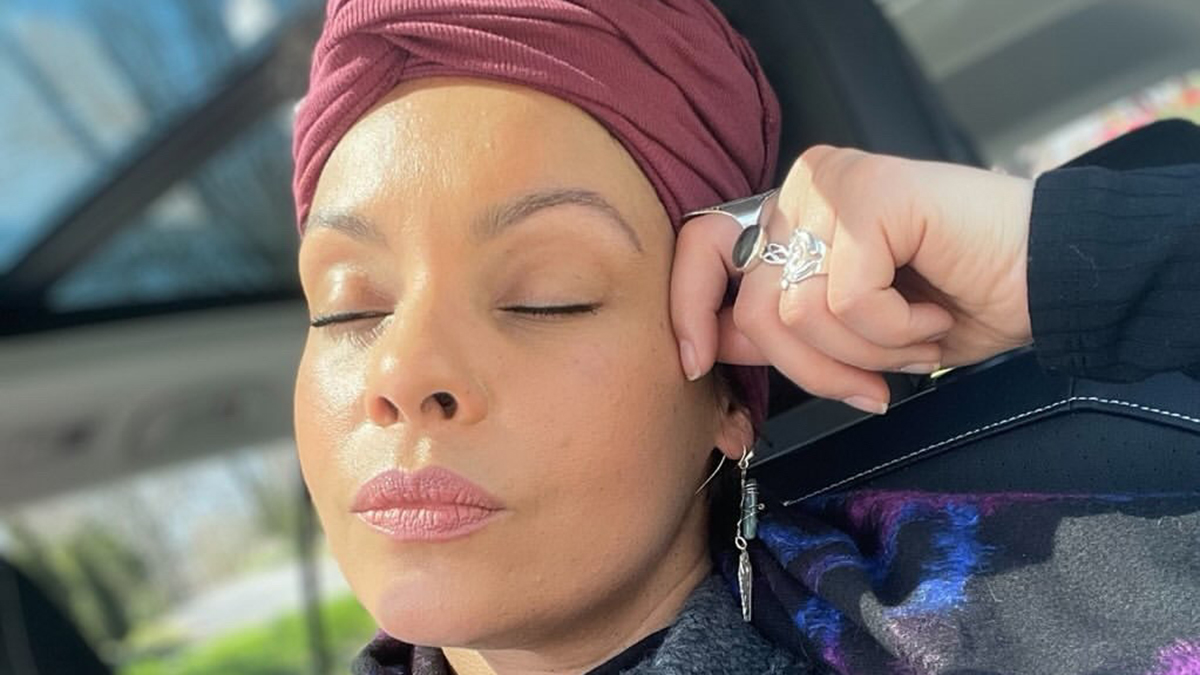Journalist, author and host of The Bigger Picture podcast, Dakari Eli continues to make creative contributions to the culture. After the recent release of her poetry collection, Mixed Bag Volume 1: I Guess it Wasn’t Love on Audible, the multifaceted talent sat down to discuss her experience, creative process, and future plans.

You recently released an audio version of your book, Mixed Bag Volume 1: I Guess It Wasn’t Love, that dropped in February. Why did you choose Audible over other audio streaming platforms?
Have you seen the average streaming royalty rate? Audible seems far more lucrative for the specific nature of this project. It is basically a spoken word platform when you think about it. The audience knows what to expect and is in a better position to appreciate the nuances of this body of work including delivery and word play compared to those who primarily stream music.
Are all these pieces based on your own experiences exclusively?
Yes, they are… I write from an authentic place. Some are a culmination of experiences, while others focus in on one feeling or person. What better way to write and express perspective than to reflect on my own experiences? I write my way through the most challenging times of my life. I find a way “out” of the dark corners of my mind and can make sense of my emotions when I see them down on paper. The poetic language beautifies the not so beautiful…
How did you decide which pieces of work would be included?
Love is something that many of us struggle with, whether it be the love we have for others or the love that we have (or don’t have) with ourselves, so after looking through my pieces, I came up with the title “I Guess It Wasn’t Love.” Several of my pieces were centered around love, so they were the deciding factor, not the other way around.
It’s pretty courageous sharing so much deeply personal content, did you feel anxious about sharing your vulnerability with the public?
Absolutely. Pieces like “Raped” and “Lonely” are the ones that standout in my mind particularly, because they are moments that I felt raw and exposed. Mental health is a reoccurring theme in my life because I’ve dealt with depression since I was a teenager, so when awful things happen it is very easy to succumb to it. Despite my anxiety about sharing, I felt it was important to share the “ugly”. Far too often we, as humans, hide the parts of ourselves that we deem unlovable, and I am hoping that the readers will understand that they are not alone in the dark spaces they find themselves in. Anger and resentment, love and self-acceptance are all part of the human experience and are very necessary, and not to be ignored.
In your letter to the reader, you speak of basically dating same type of person over and over again. Why do you think we as people tend to do that?
Ha! Because most of us are not willing to do the work necessary to grow. We need to be more accountable for our decisions and realize that we are the ones selecting the people in our lives. None of us are victims of love. When uncovering the reasons why we pick certain lovers, we may find that we have childhood trauma, or we may even choose a partner that is a lot like one of our parents. A person’s love language has a lot to do with why we select certain people. In any case, if we do not know of thyself, we will continue to blindly go about our relationships and not understand ourselves or our lovers.
Did you find releasing the book therapeutic as far as your own personal healing?
100%. By releasing it into the world, I no longer “own” that pain. The experiences belong to the readers, and it is completely up to them as to what the poems mean. They actively participate in the writing process whether they know it or not, and I am grateful that they are a part of the journey.
You also included images you shot in the hardcover and paperback versions of your book. How long have you been interested in photography?
I’ve loved photography and visual art since I was a child. My third grandmother (a story for a later date) was an artist and writer. She had multiple pieces of abstract art around the home, including pieces made from metal, so art has always been in my life. Photography is a language all its own. It’s like visual poetry that convey a story or an emotion, and like poetry everyone’s perspective may be different. It all depends on the experiences of the viewer.
I Guess It Wasn’t Love is the first book of the Mixed Bag series, can we expect the forthcoming volumes to be as personal?
Everything I write is personal even when it’s objective. How can poetry not be personal? In my opinion, the best pieces of writing are the ones that share the writer’s most intimate details. If I were to write a piece about someone else, my writing is still colored with my experiences so my perspective will still be personal. There’s no way of getting around it. It’s part of being a writer/poet.
Lyrics from your EP Black Dove Blue Song were included in the text versions of your book, but not the audiobook. Is that because the EP is already on streaming platforms?
Very observant of you. When working on the audiobook I tried to speak the lyrics as if they were spoken word, but because I had already transformed them into songs, it just didn’t feel right. I want to people to able to experience the pieces as they are now, as songs not poetry. They’re on every streaming platform, so like my poetry, I’m looking forward to the listener being a part of the journey.
What would you say to the men you’ve dated who may feel exposed in your pieces?
“Thank you for the material and get over yourself. If you feel that strongly about it, go write a book. I did.”
Now that the book is out, tell us what we can expect next from you.
I am currently working on a music project that I will release around the end of this year. It will be in conjunction with the book baring the same title. I’m experimenting with my voice and will have songs that are a fusion of sound and will not be comparable to the Black Dove Blue Song EP. There is so much going on inside of me that I will not be put in a box, ever. Not even in death.


